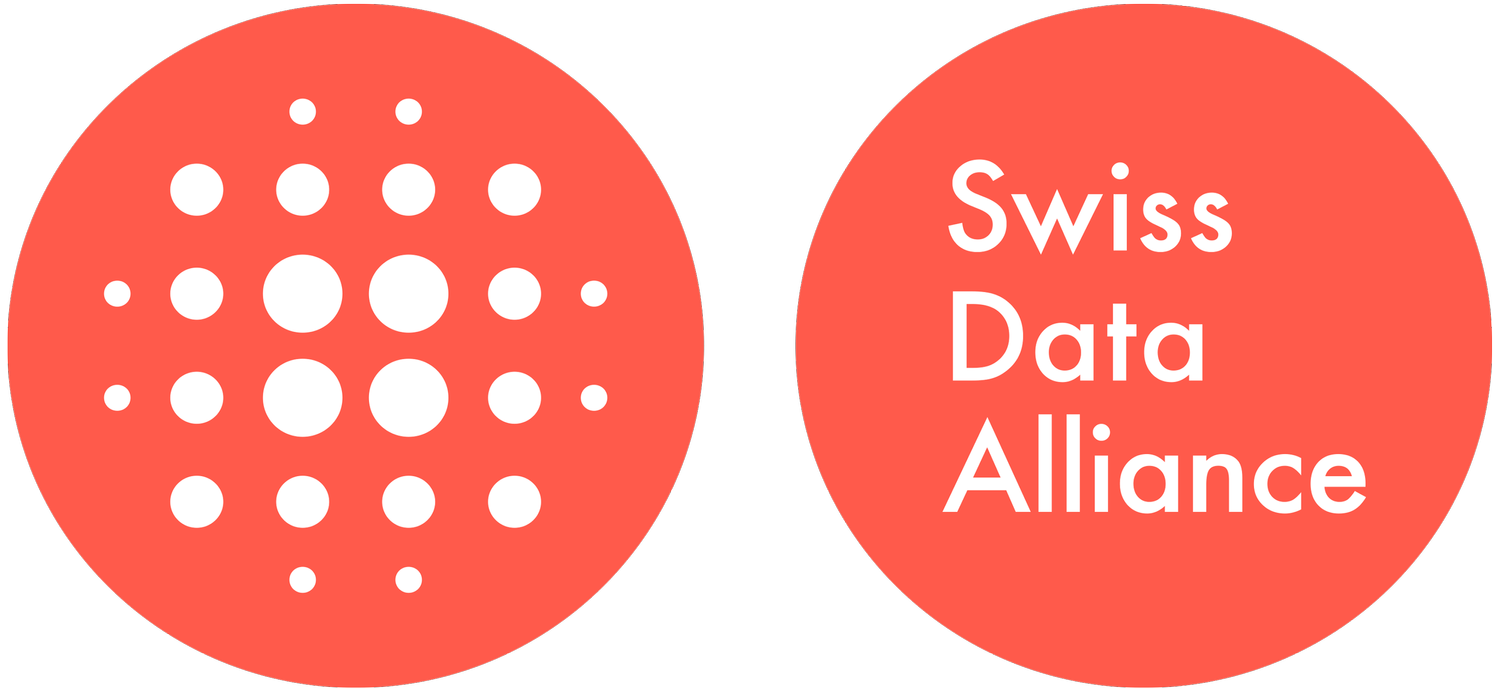
Upcoming events.

Digital sovereignty: panel discussion with Matthias Stürmer and Christian Laux
Digital sovereignty:
Panel discussion with Matthias Stürmer and Christian Laux
Control is the central concept in connection with digital sovereignty. When are companies or public authorities themselves responsible for this control in the digital sphere - and in which situations does the state come into play?
The Swiss Data Alliance has proposed a review model in its publications on digital sovereignty. According to this model, the state is responsible if digital processes have an impact on Swiss territory and Switzerland as a state is institutionally affected. What goes beyond this is a matter for the individual day-to-day organization of companies and official bodies.
E-ID, Swiss Government Cloud, regulation of AI: how should these projects be assessed from the perspective of digital sovereignty?
Geopolitical situation: What challenges are we facing in the digital world and how should the state respond?
Signs for the future: In which areas of digitalization should Switzerland launch lighthouse projects?
Matthias Stürmer heads the "Public Sector Transformation" institute at Bern University of Applied Sciences.
Marc Steiner (moderator) is a judge at the Federal Administrative Court.
Christian Laux is a lawyer and Senior Partner at LLAG and Vice President of the Swiss Data Alliance.
The panel will take place on Wednesday, June 11 in Bern.
16:30 Introduction to digital sovereignty.
16:45 Panel with Christian Laux and Matthias Stürmer (Moderation: Marc Steiner)
17:30 Questions from the audience
18:00 Aperitif

Swiss Data Space Forum 2025
Join us for the Swiss Data Space Forum 2025 and connect with technical, legal and business pioneers from across the country!
Register now at forum.swissdataalliance.ch!

Artificial intelligence and good data
The Swiss Data Alliance panel will present approaches from the perspective of providers and users

Swiss Data Space Forum
Join us for the first Swiss Data Space Forum and connect with technical, legal and business pioneers from across the country!
Register now at forum.swissdataalliance.ch!

Digital sovereignty and the responsibility of the state
As part of a panel discussion on June 13, the Swiss Data Alliance will present a white paper on digital sovereignty that brings together important findings from recent years. We understand the term in a narrow sense as the ability of a state to actively shape its own position and protect itself from digital threats.
Christian Laux
Vice President Swiss Data Alliance
Francesca Giardina
Digitalization + Society Division, Stiftung Mercator
Roger Dubach
Deputy Head, Directorate of International Law FDFA
Program
16:45 Welcome and presentation of key findings
17:00 Panel with Christian Laux and Roger Dubach (Moderation: Francesca Giardina)
17:40 Discussion and questions from the audience
18:15 Aperitif
"Digital sovereignty is the ability of a state to define its jurisdiction internationally, shape its internal affairs and defend both, including in the digital world."
Digital sovereignty is at stake when it comes to the state as a whole. This is the case, for example, when a hacker attack paralyzes the Swiss pumped storage plants. The Swiss Data Alliance 's white paper argues that digital sovereignty is a matter of international law and should not be confused with everyday digital issues such as open source software or Swiss cloud computing.
Registration

The most important data for Switzerland
What is Switzerland's most important data - and how do we deal with it?
Podium of the Swiss Data Alliance in cooperation with the Committee for Cybersecurity of digitalswitzerland.
With Manuel Suter(Federal Office for Cyber Security), Tom Kleiber(Switch) and Marc Holitscher(Microsoft)
16:30 General meeting of the Swiss Data Alliance (internal)
17:00 Start of panel (Moderation: André Golliez)
17:30 Discussion and questions from the audience
18:15 Aperitif
Manuel Suter
Head of Management Staff, BACS
Tom Kleiber
Managing Director, Switch
Marc Holitscher
National Technology Officer, Microsoft Switzerland
COVID-19 has dramatically demonstrated how data suddenly becomes existentially important for Switzerland in crisis situations. It is advisable to define the most important data for Switzerland's well-being with a view to various crisis scenarios (energy supply, environmental disasters, wars) and to ensure their availability on the part of the authorities, operators of critical infrastructure and other data providers in the event of an incident.
In particular, this also includes special digital protection, security management and the storage structure for this data. This is also called for in a corresponding motion by the Security Policy Committee of the Council of States, which was unanimously adopted. The new Federal Office for Cyber Security (BACS), which has been part of the Department of Defense, Civil Protection and Sport (DDPS) since January 2024, is responsible for implementing the motion.
Registration

Sovereignty and Trust in Digital Europe (Davos)
We are delighted to welcome our guests to our exclusive digitalswitzerland Village in proximity to the House of Switzerland / Ice stadium in Davos during the week of the Annual Meeting of the World Economic Forum 2024 in Davos.
In partnership with digitalswitzerland, the Swiss Data Alliance will hold an event on digital sovereignty and digital infrastructure.
Sovereignty and Trust in Digital Europe: Navigating the Geopolitical Landscape in the Age of A.I.
Roger Dubach - Ambassador, Deputy Director - Directorate of International Law at FDFA - DFAE - FDFA
Casper Klynge - Senior Vice President, Ambassador of Denmark (ret.) - Danish Chamber of Commerce
Stefaan Verhulst - Co-Founder, Chief Research and Development Officer | Director of the Data Program - The GovLab

Data Commons for Switzerland (online event)
Using the example of geodata, André Golliez presents the concept of jointly managed "data commons".

Digital sovereignty: Switzerland's position in the data-based world
The debate on sovereignty arose in the context of territorially defined nation states. But the data-based, digital world does without these geographical borders. What does this mean for Switzerland?

Artificial intelligence from a data perspective (breakfast event)
Everyone is talking about artificial intelligence - but what about the data on which the various AI models are based? And how should the regulatory demands of politicians be assessed?











